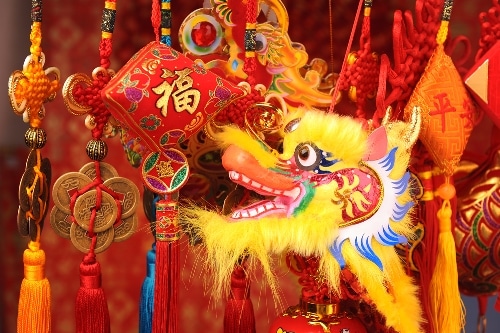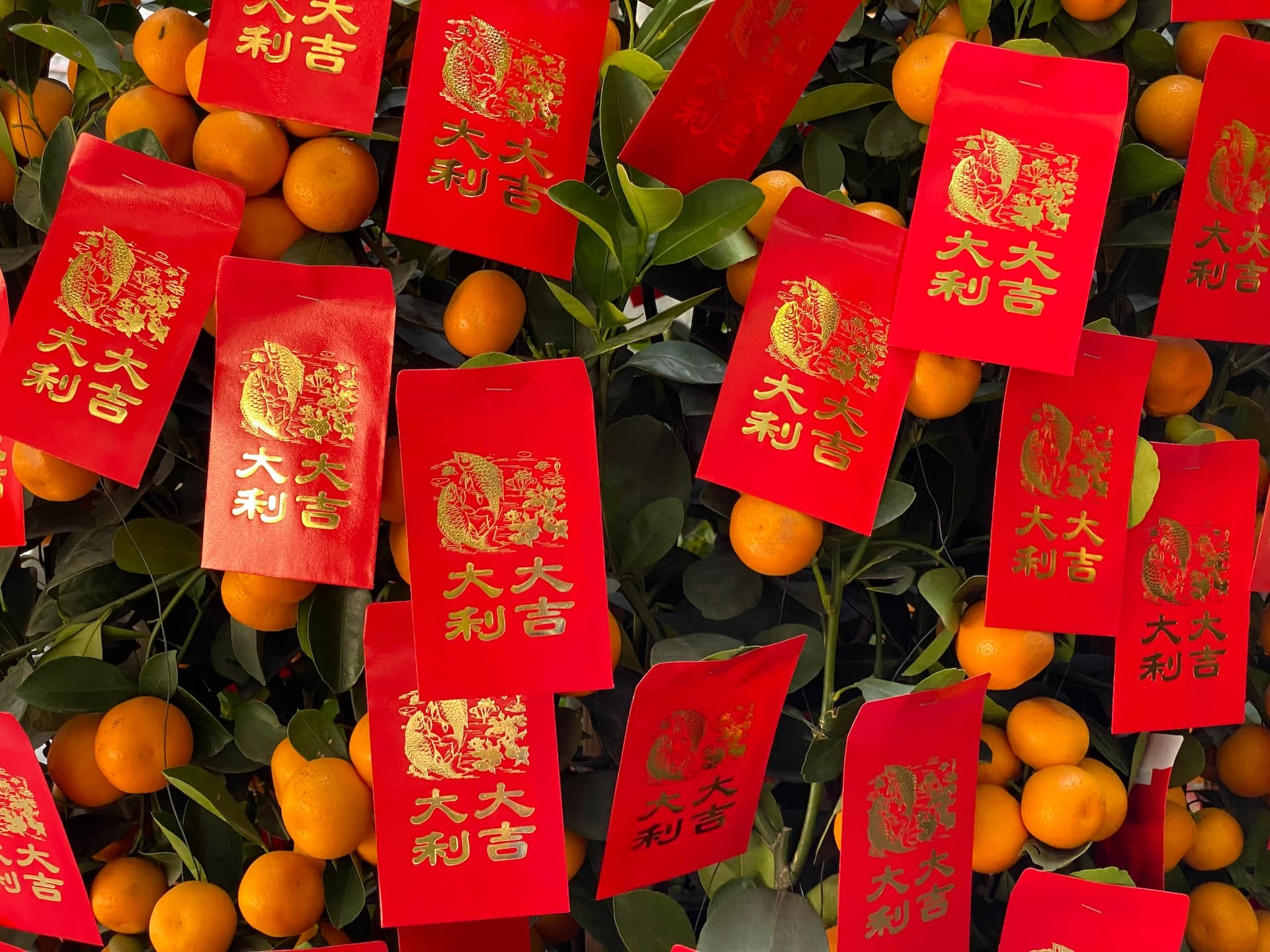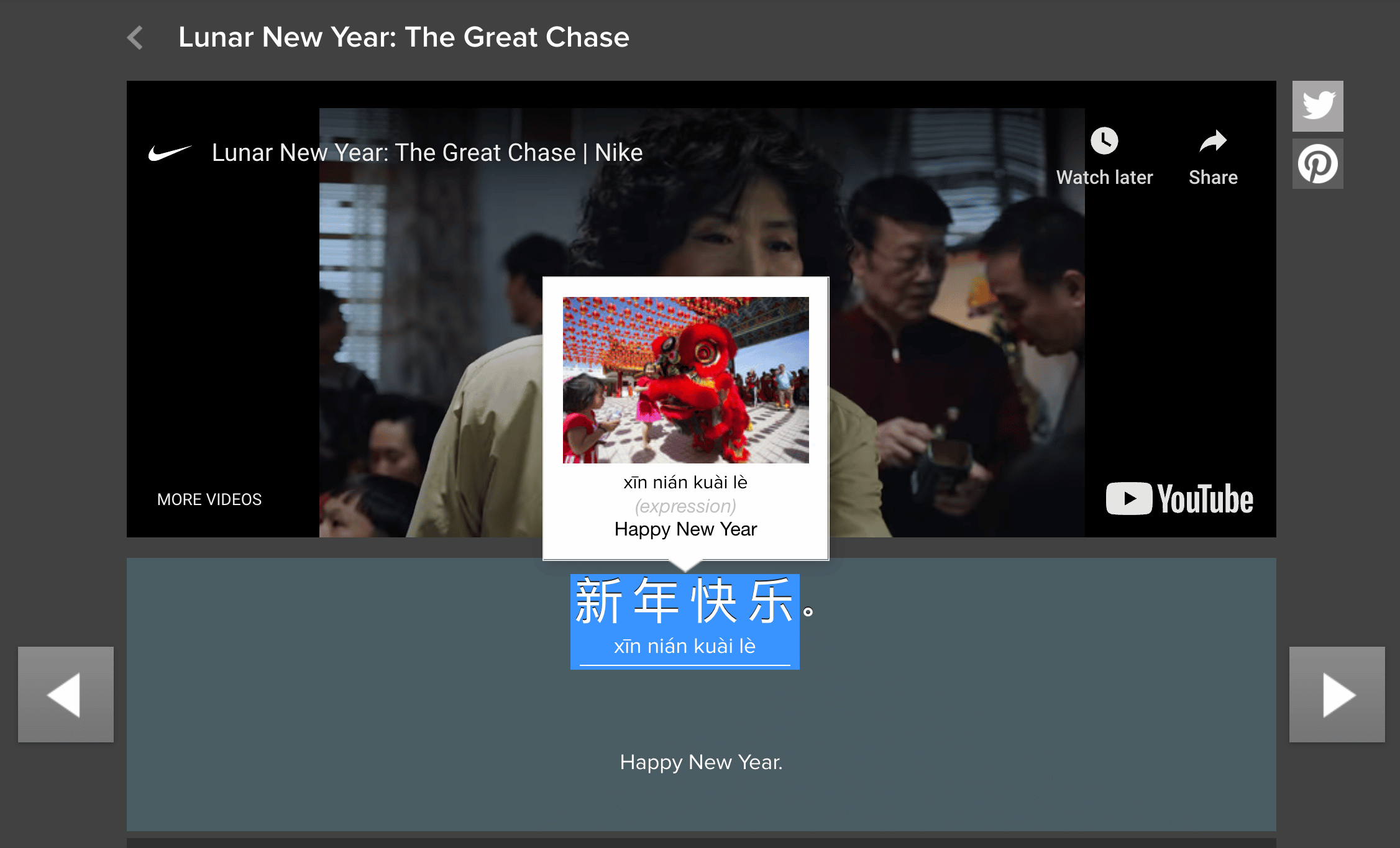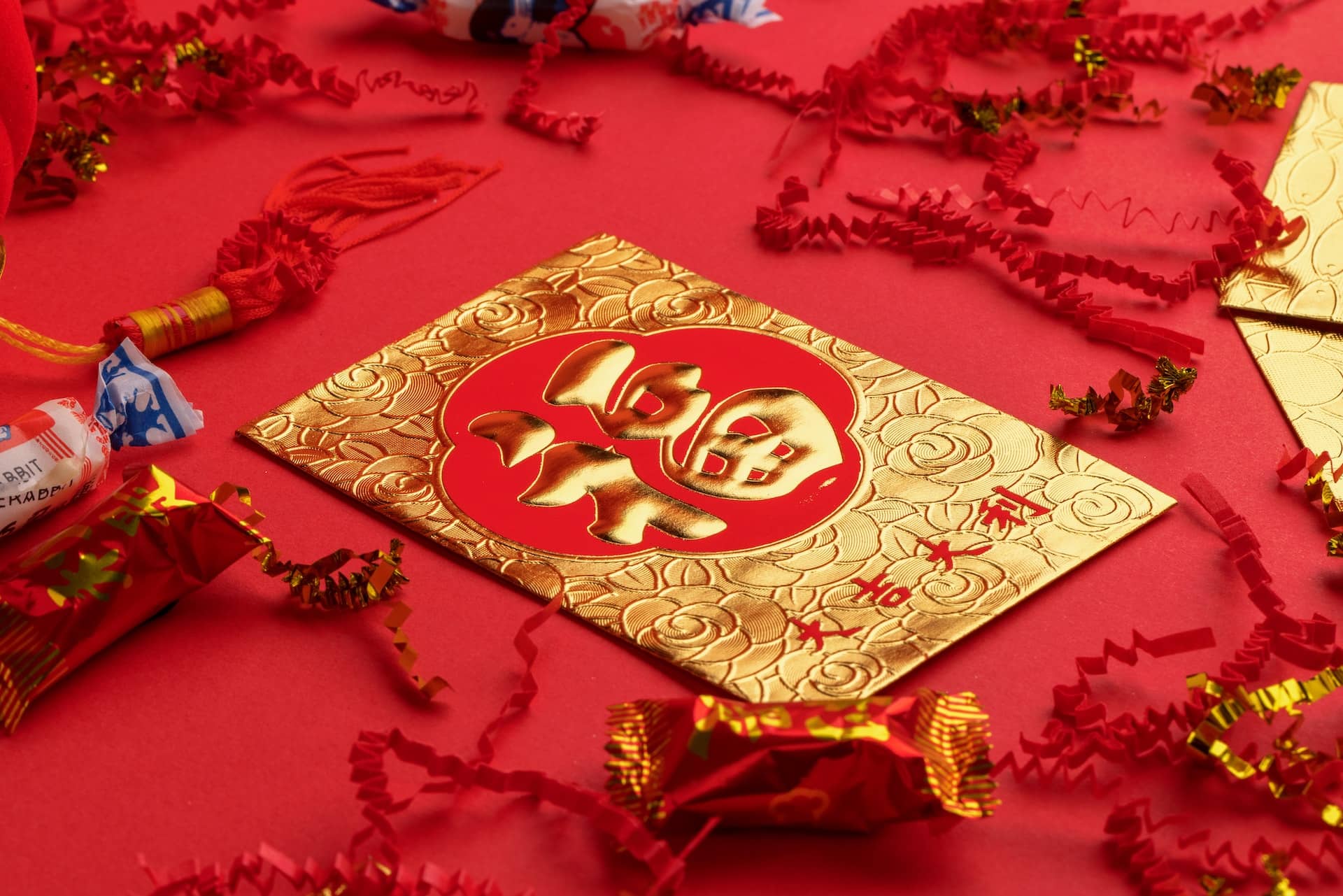Chinese New Year Greetings and Cultural Traditions to Celebrate China’s Biggest Holiday | FluentU Mandarin Chinese

Mục Lục
Chinese New Year Greetings and Cultural Traditions to Celebrate China’s Biggest Holiday
Whether you have Chinese friends or your trip to China falls in the wintertime, Chinese New Year greetings are something you’ll need to know.
Not only will you be able to understand the seasonal vocabulary in the air, but you’ll also deepen your understanding of Chinese culture, considering it’s the biggest holiday of the year.
In this post, you’ll learn how all the must-know Chinese New Year wishes, useful phrases during this festive time and the cultural traditions associated with it.
Contents
Download:
This blog post is available as a convenient and portable PDF that you
can take anywhere.
Click here to get a copy. (Download)
Common Chinese New Year Greetings
The five common ways to say “Happy New Year” in Chinese are:
1. 新年好 (xīn nián hǎo)
“Have a good New Year!”
2. 新年快乐 (xīn nián kuài lè)
“Have a Happy New Year!”
3. 过年好 (guò nián hǎo)
“Happy New Year!”
4. 春节快乐 (chūn jié kuài lè)
“Happy Spring Festival!”
5. 兔年大吉 (tù nián dà jí)
“Have a prosperous Year of the Rabbit!”
Chinese New Year Wishes for Wealth and Prosperity

Money and wealth are highly valued in Chinese culture, and Chinese people aren’t shy to talk about money. It’s considered appropriate and polite to offer money-related greetings at New Year.
Here’s a list of wealth and prosperity Chinese New Year greetings you can use right away.
6. 恭喜发财 (gōng xǐ fā cái)
“Wish you wealth and prosperity.”
7. 财源广进 (cái yuán guǎng jìn)
“May wealth flow in.”
8. 和气生财 (hé qì shēng cái)
“May harmony bring wealth.”
9. 金玉满堂 (jīn yù mǎn táng)
“May your gold and jade fill the halls.”
10. 一本万利 (yī běn wàn lì)
“Hope you put in a small investment and reap a huge profit.”
11. 招财进宝 (zhāo cái jìn bǎo)
“May you find wealth and treasures.”
12. 财源滚滚 (cái yuán gǔn gǔn)
“May wealth come pouring in.”
13. 大吉大利 (dà jí dà lì)
“May you have great luck and great profit.”
14. 年年有余 (nián nián yǒu yú)
“May you have abundance every year.”
Chinese New Year Wishes for Success in Business
Another popular Chinese New Year greetings series involves wishing people success in their work or business. Yes, some of it’s related to making money—it’s hard to get away from that theme!
15. 事业发达 (shì yè fā dá)
“May your career take off.”
16. 升官发财 (shēng guān fā cái)
“May you get promoted and receive a raise.”
17. 生意兴隆 (shēng yì xīng lóng)
“May your business flourish.”
18. 学业进步 (xué yè jìn bù)
“May your studies improve.”
19. 步步高升 (bù bù gāo shēng)
“May every step take you higher.”
20. 新年进步 (xīn nián jìn bù)
“May the New Year bring much better things.”
Chinese New Year Wishes for Happiness, Health and Peace
You can also wish people peace, health and happiness. The below phrases are perfect for elders in the family, people outside of your work and business circles, or just people in general that you care for and love.
21. 心想事成 (xīn xiǎng shì chéng)
“May all your wishes come true.”
22. 万事如意 (wàn shì rú yì)
“May everything go well with you.”
23. 笑口常开 (xiào kǒu cháng kāi)
“May you smile often.”
24. 五福临門 (wǔ fú lín mén)
“May the five blessings come to you.” (Longevity, wealth, health, virtue, and a natural death.)
25. 身体健康 (shēn tǐ jiàn kāng)
“Wish you good health.”
26. 竹报平安 (zhú bào píng ān)
“May you hear tidings of peace.”
27. 福寿双全 (fú shòu shuāng quán)
“May you enjoy both longevity and blessing.”
28. 岁岁平安 (suì suì píng ān)
“May you have peace at every age.”
29. 和气吉祥全家乐 (hé qì jí xiáng quán jiā lè)
“Wish you harmony and joy for the whole family.”
30. 四季平安过旺年 (sì jì píng ān guò wàng nián)
“Wish you four seasons of peace and a flourishing year.”
How to Use Chinese New Year Greetings
To use a New Year greeting, such as the ones listed in this article, begin your sentence with 祝你 (zhù nǐ), which translates to “wish you…”
To be more formal—which is necessary for greeting an older or respected person—use the honorific 您 (nín) for “you” instead.
So, you’d begin your greeting with 祝您 (zhù nín), which is a more polite version of “wish you…”
Generally, you’d begin by greeting the person by name. Especially if the person is older than you, someone in your family or someone with authority, you must address them by their position or title.
For example:
Family member:
奶奶,新年快乐! (nǎi nai, xīn nián kuài lè!)
“Grandma, Happy New Year!
Authority figure:
王老板,新年好! (wáng lǎo bǎn, xīn nián hǎo!)
“Mr. (Boss) Wong, Happy New Year!”
Friend:
小南,春节快乐! (xiǎo nán, chūn jié kuài lè!)
“Nan, Happy Spring Festival!”
Adjusting your greeting based on formality takes practice, but I promise, it’ll eventually come naturally. The way I recommend learning these differences, picking up on cultural cues, learning new vocabulary and overall sounding more like a native speaker is by immersing yourself in Chinese for all situations.
If you can’t get your hands on a plane ticket to China just yet, the best way to bring natural Chinese to your home is by using an immersive language learning program like FluentU.
FluentU takes authentic Chinese videos from the internet (like music videos, movie clips, commercials and more) and turns them into language lessons.

When it comes to Chinese New Year greetings, you can search for specific vocabulary and the video-based dictionary will generate loads of videos for you to watch that use the phrase naturally.
And while watching the video, you can click on words and phrases you don’t know in the interactive subtitles to add them to your customized flashcard deck, see definitions and read example sentences.
Chinese New Year Traditions

As the most important holiday of the year, Chinese New Year brings celebrations that last over two weeks.
Called 农历新年 (nóng lì xīn nián — Lunar New Year) or 春节 (chūn jié — Spring Festival), Chinese New Year is celebrated on the first month of the lunar calendar, from the 1st to the 15th day.
Here’s a link to see which dates Chinese New Year falls on each year.
Visiting Friends and Family, Sharing Gifts
During this time, it’s customary for people to greet one another with New Year well-wishes, which bring in good fortune for the coming year.
It’s also customary to visit people at their homes, a practice called 拜年 (bài nián). Upon visiting one another, people exchange gifts, such as fruit, candy, cakes and red envelopes with cash, called 红包 (hóng bāo).
Here’s a humorous skit from CCTV (China Central Television, the state television broadcaster) on what happens during 拜年.
However, some gifts are taboo, and you shouldn’t bring them. Gifts associated with funerals, like handkerchiefs, towels and certain types of flowers, such as chrysanthemums, may be considered offensive.
Chinese people dislike receiving clocks because it suggests that time (and life) is running out.
Sharp objects are considered unlucky because they suggest a cutting off of ties or relations.
Here’s a handy infographic guide on gift-giving customs in China, so you’ll always know what to get.
Lunar New Year Customs and Activities
In addition to visits and gifts, Chinese people celebrate by going to open-air markets that pop up just for Chinese New Year.
These markets are often crowded with people and are very lively and festive. At these markets, you can buy food, small gifts, cut flowers, house plants and other 年货 (nián huò), that is, New Year paraphernalia.
Several types of flowers are associated with Chinese New Year, such as plum blossoms 梅花 (méi huā), kumquat 金橘 (jīn jú) and narcissus 水仙花 (shuǐ xiān huā).
Traditionally, Chinese people also light firecrackers, or 放鞭炮 (fàng biān pào), during Chinese New Year. This has a symbolic meaning of scaring away evil and bad luck.
Chinese people love watching dragon dances, or 舞龙 (wǔ lóng), in which trained dancers dance as one “dragon,” often chasing one other dancer, who holds a “pearl.”
There’s also a traditional song, called “新年好呀” (xīn nián hǎo yā), which you might hear if you’re lucky.
Many people like to wear red at Chinese New Year. Red is always a lucky color for traditional Chinese. That’s why you’ll see plenty of red at Chinese weddings, grand openings of businesses and other celebratory events.
To decorate, Chinese may put up auspicious sayings written on red paper, called 春贴 (chūn tiē) or 挥春 (huī chūn), or display paper cuttings called 剪纸图 (jiǎn zhǐ tú)—a special art that presents silhouetted images of animals, flowers and even entire scenes in paper.
Now you have 30 new Chinese New Year greetings ready to go for Spring Festival!
Download:
This blog post is available as a convenient and portable PDF that you
can take anywhere.
Click here to get a copy. (Download)















![Toni Kroos là ai? [ sự thật về tiểu sử đầy đủ Toni Kroos ]](https://evbn.org/wp-content/uploads/New-Project-6635-1671934592.jpg)


